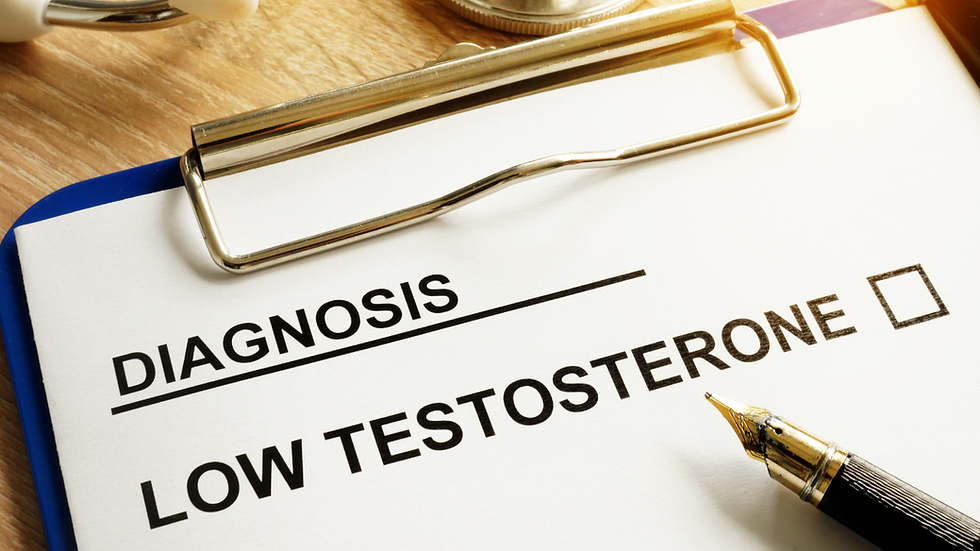Frequent Flyer? The Surprising Link Between Flying and Inflammation
- Regenify Health

- Aug 30, 2024
- 4 min read
Updated: Nov 3
In our modern, fast-paced world, air travel has become a regular part of life for many. Whether for business or leisure, the convenience of flying is unmatched. However, frequent flyers may be unaware of the hidden toll that air travel can take on their bodies, particularly when it comes to inflammation. This blog explores why inflammation occurs during and after flights, the potential impact of radiation exposure at security checkpoints, the role of jet lag and circadian rhythm disruption, and practical steps to minimise these effects, including how the Human Regenerator™ might help.

Why Does Inflammation Occur When Flying?
Inflammation is the body’s natural response to injury, infection, or stress. It’s part of the immune system’s defence mechanism, designed to protect and heal the body. However, when inflammation becomes chronic, it can lead to a range of health problems, including cardiovascular disease, arthritis, and even some forms of cancer.
When flying, several factors can trigger inflammation:
1. Cabin Pressure and Reduced Oxygen Levels: At high altitudes, the cabin pressure in an airplane is lower than at sea level, leading to reduced oxygen levels. This can cause hypoxia, a condition where the body’s tissues don’t receive enough oxygen, which can trigger an inflammatory response as the body attempts to cope with the stress.
2. Immobility and Blood Flow: Long periods of sitting in cramped conditions can reduce blood flow, particularly in the legs. This can cause blood to pool, leading to swelling and, in some cases, deep vein thrombosis (DVT). The reduced circulation can also promote inflammation as the body struggles to maintain normal function under these conditions.
3. Dehydration: Airplane cabins have very low humidity, which can lead to dehydration. Dehydration thickens the blood and makes it harder for the heart to pump, increasing the risk of inflammation and other circulatory issues.
The Role of Radiation from Security Scanners
Another potential source of inflammation for frequent flyers is exposure to radiation during airport security checks. Most modern airports use backscatter X-ray machines or millimeter-wave scanners to screen passengers. While the radiation dose from a single scan is very low, frequent exposure could potentially add up over time, leading to oxidative stress and inflammation in the body.
The Impact of Jet Lag and Circadian Rhythm Disruption
Jet lag is a common side effect of long-haul flights, particularly when crossing multiple time zones. It occurs because the body’s internal clock, or circadian rhythm, becomes misaligned with the new time zone. This disruption can lead to a host of symptoms, including fatigue, insomnia, digestive issues, and mood changes.
Circadian rhythm disruption is also linked to increased inflammation. When the body’s natural sleep-wake cycle is disturbed, it can lead to a state of chronic stress, which, in turn, triggers the release of inflammatory markers. Over time, this can contribute to a range of health issues, including metabolic disorders and weakened immune function.
How to Minimise the Impact of Inflammation When Flying
Fortunately, there are several strategies that frequent flyers can employ to reduce the risk of inflammation:
1. Stay Hydrated: Drinking plenty of water before, during, and after your flight can help counteract the dehydrating effects of the cabin environment. Consider using electrolytes to supplement this practice.
2. Move Around: Try to get up and move around the cabin at regular intervals or perform simple leg exercises in your seat to promote blood circulation.
3. Eat Anti-Inflammatory Foods: Incorporate foods rich in antioxidants and omega-3 fatty acids, such as berries, leafy greens, and fatty fish, into your diet to help combat inflammation.
4. Manage Jet Lag: To minimise the effects of jet lag, try to gradually adjust your sleep schedule before your trip, expose yourself to natural sunlight upon arrival, and consider taking short naps to help your body adjust to the new time zone.
The Role of the Human Regenerator™
For those looking to take their wellness routine to the next level, the Human Regenerator™, a wellness device that utilises Cold Atmospheric Plasma (CAP) technology, might offer additional support in managing inflammation associated with frequent flying. The Human Regenerator™ is designed to promote relaxation, reduce stress, and enhance overall well-being.
- Reducing Cortisol Levels: One of the key benefits of the Human Regenerator™ is its ability to lower cortisol, the body’s primary stress hormone. High cortisol levels, often caused by travel-related stress and circadian disruption, can exacerbate inflammation. By helping to regulate cortisol, the Human Regenerator™ may aid in maintaining a more balanced immune response.
- Boosting Serotonin and Melatonin: The Human Regenerator™ also promotes the release of serotonin and melatonin, neurotransmitters that play a crucial role in mood regulation and sleep. By supporting healthy sleep patterns and reducing the effects of jet lag, the device may further help in minimising inflammation and enhancing recovery after travel.
- Enhancing Circulation: The CAP technology in the Human Regenerator™ may also improve blood circulation, potentially counteracting some of the circulatory issues caused by prolonged immobility during flights. This could help reduce the risk of blood clots and inflammation, contributing to overall cardiovascular health.
Conclusion
Frequent flying can take a toll on your body, potentially increasing the risk of inflammation due to factors like cabin pressure, immobility, dehydration, and circadian rhythm disruption. However, by staying hydrated, moving regularly, eating anti-inflammatory foods, and managing jet lag, you can help minimise these effects. Additionally, incorporating advanced wellness tools like the Human Regenerator™ into your routine could provide further support, helping you stay balanced and healthy as you navigate the skies.



